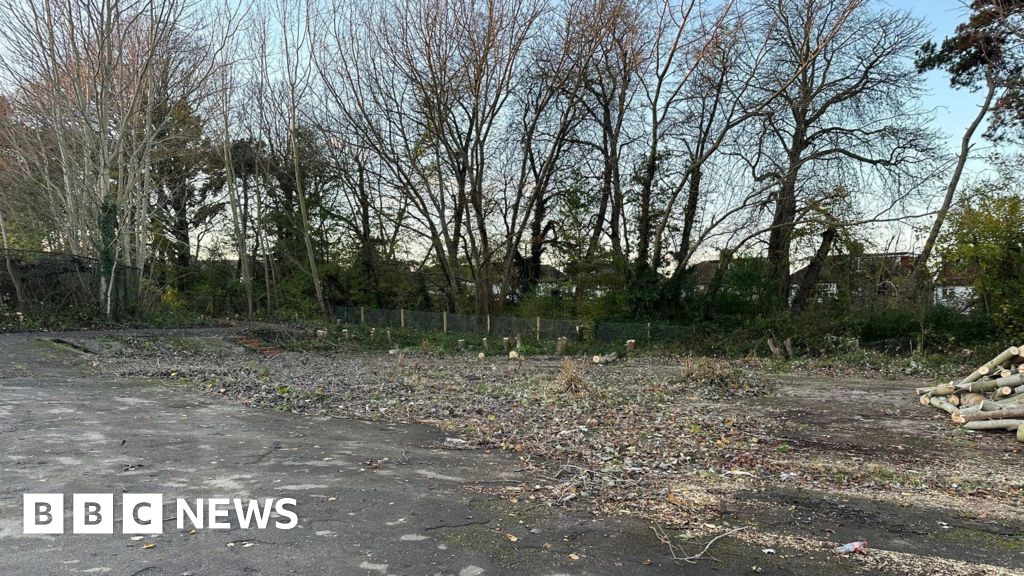Football
England football shirt: Why fans are turning to fake kits
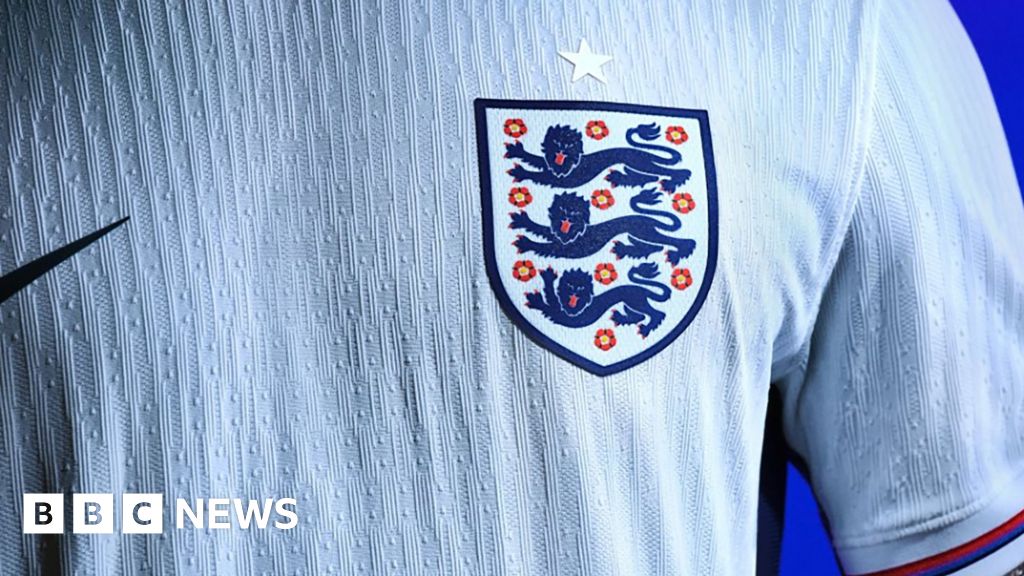
By Harry Low, BBC News • Julian Paszkiewicz, You and Yours
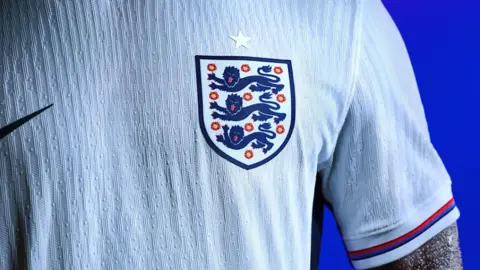 The FA
The FAFootball fans facing rising prices for replica England shirts have been buying fake kits online instead.
The England men’s home shirt, launched in March, costs £85 for adults and £65 for children in the Football Association’s official store.
Dan, from London, told BBC Radio 4’s You and Yours this is “heinously overpriced” and says he has been buying fake shirts for his four children – which cost as little as £11 – for 10 years.
The FA told the BBC that kit prices were set by manufacturer Nike. The company has not responded to requests to comment.
‘Extortionate’
The BBC was unable to reach any of the fake replica kit manufacturers.
Ahead of the 2002 World Cup, an adult England shirt cost £40. Adjusting for inflation using the Bank of England’s calculator, it would cost £71.65 in today’s money.
Compared to the current price of £85, this is a rise of 18.6%.
The children’s version, which cost £30 in 2002, has increased by 21% in real terms.
Another version of the adult shirt in the FA’s national team store costs £125.
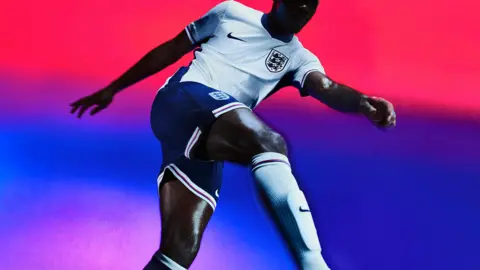 Nike
NikeDan told the BBC he could get four fake shirts for the cost of one official version.
He said: “If they were reasonably priced, I would 100% buy the genuine article.
“The simple fact is that the price of these things is just extortionate. I’m fortunate to be in a position where I can even afford the copies.
“I know there are people now who, unfortunately, are probably struggling even to buy those because money is so tight.”
The latest edition of football magazine Mundial features a seller of counterfeit football shirts who used to make £1,000 a week from his “dirty little secret”.
The anonymous writer says an online shop now exists “that uses my catalogue word for word – a beautifully ironic instance of a counterfeiter counterfeiting a counterfeiter”.
The magazine’s editor Seb White described newer counterfeits as “more realistic” and said football shirts “are as popular as they ever were”.
He said: “Football shirts are under such demand that they can almost get away with the high price and people will pay it because they want to be seen in the latest thing.
“There’s almost no limit to it now and, of course, kids put pressure on their parents because they want the latest thing and at the moment the latest thing seems to be the latest football shirt.”
Although it is not illegal to buy counterfeit goods, the National Fraud Intelligence Bureau advises consumers to avoid buying fake goods because “you’re helping the trader to break the law”.
The City of London Police-affiliated organisation urges people to report any instances of fraud.
There are often links between counterfeit goods and organised crime, meaning the proceeds of sale are used by gangs both in the UK and abroad to fund other criminal operations – estimated at over £900m a year – according to the Premier League. It also says fake goods “may pose a risk to the health and safety of fans”.
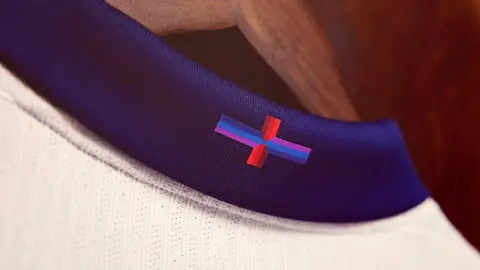 Stuart Manley/The FA
Stuart Manley/The FAThe FA says on its website that it invests £100m in grassroots football, and buying counterfeit goods jeopardises this.
It says: “Without the income generated from commercial activity such as sponsorship, licensing and merchandising, this would not be possible.
“Our aim is to protect football fans and protect and enhance those monies that we can reinvest back into the game.”
As for Dan, he says he has now stopped buying fake shirts but understands the appeal to others – even if there can be delays of up to two months to receive them.




